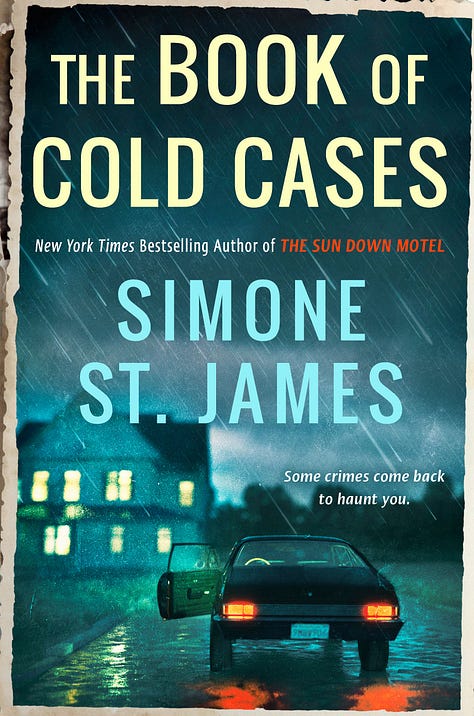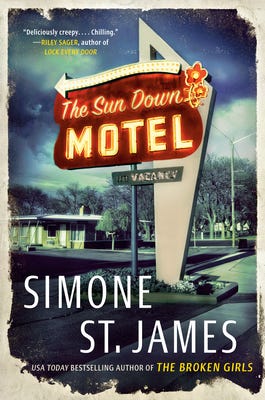I admit that these are two fantasy sub-genres I probably have not read in as much as I think. For a while, I thought grimdark fantasy was fantasy that made you cry, which, while not especially wrong, is possibly not the sum total of the genre.
Grimdark fantasy and dark fantasy. What do these two terms even mean? As usual, I do like to take a gander at the experienced writers, so here’s MasterClass with some definitions.
Dark fantasy: Combining elements of fantasy with the horror genre, dark fantasy’s aim is to unnerve and frighten readers. For example, consider the gargantuan, otherworldly monsters in H. P. Lovecraft’s universe. Gothic and Victorian dark fantasy tends to embrace a paranormal setting and supernatural elements, which can range from vampires to werewolves and beyond. Note that by no means is every paranormal fantasy a dark fantasy.
Grimdark fantasy: One step beyond dark fantasy, grimdark novels pry into the blackest depths of the human condition, often in the proverbial underbelly of an alternate world. The Court of Broken Knives by Anna Smith Spark is a popular book within this subgenre. - MasterClass

Okay. So dark fantasy has horror undertones/overtones and grimdark is just bloodier, sadder, madder? Huh, this is probably going to be a short post.
But then I saw somebody put Assassin’s Apprentice by Robin Hobb into a grimdark fantasy list and now I’m confused again.
Don’t get me wrong. There are “dark” elements to Assassin’s Apprentice, but I wouldn’t classify the novel as grimdark. Sure, there’s an entire sequence where family members are described as having to kill their own kin after they have been essentially, magically lobotomized and turned into beings with no morals, no sense of real self, and no good desires, but I still wouldn’t call that novel grimdark.
(For those who are concerned for spoilers, that is not a spoiler. I haven’t even brushed the surface).
Partly because Hobb, while one of the greatest writers of our time (I say with conviction and I’m probably right) doesn’t dwell on the ugly and grotesque in a way that is meant to invoke horror in the way that horror writers are meaning it. Her writing does invoke horror, but because of the situation, not because she is forcing us to sit there with every tiny, little detail. In some cases, she may still be too much for some readers, but that’s a matter of preference more than writing style.
If grimdark fantasy is a darker version of dark fantasy, then Assassin’s Apprentice, both dark and full of light, despairing and hopeful, heartbreaking and heartwarming, does not fit the bill.
Others I’ve seen and have not yet read may fit the bill. For example, John Gwynne’s fantasy series - well, apparently, all of them would work. The way I often see these described is having morally grey antiheroes with graphic violence, other dark subject matter, and a happy ending is not necessarily promised. It’s a sort of “I’m here for a good time, not a long time” kind of deal.



In my opinion, if you’re going to call your fantasy grimdark, there has to be violence, and violence done well. There’s a huge difference between a finely written, detailed, nail-biting account of a bloody battle and the equivalent of a body horror fan’s idea of a meat salad. To clarify, the latter doesn’t read as grimdark to me.
Dark fantasy, in the same vein, has elements of horror but the genre is not defined in the same way as horror or fantasy horror would be. In fact, a definition of horror would not be out of bounds here:
Horror is a genre of literature, film, and television that is meant to scare, startle, shock, and even repulse audiences. The key focus of a horror novel, horror film, or horror TV show is to elicit a sense of dread in the reader through frightening images, themes, and situations.
In the horror genre, story and characters are just as important as mood and atmosphere. A horror story often shocks and provokes with its exploration of the unknown. - MasterClass
I’ve also been given to understand that, in general, horror does not have happy endings.
Adding a horror element does not always mean it fits the dark fantasy mold, either. You can add Cthulhu to your story, but if he’s just an “UwU lonely baby boy” who actually just wants love, you’re not really hitting the dark fantasy spectrum so much as just taking a horror element and molding it to fit your story. Which is still great, of course.
I had a very brief foray into horror. I’m currently on the third book in Stephen Graham Jones’ Angel Lake trilogy, by which I mean that I’m at the third book and took a long break before reading it. I needed to digest the second for a little while. I love it, but I need to read it in small doses.
But that’s the kind of horror I can stand. A while ago, when I was still working at the public library, I was shelving books and took a few minutes to speed-read through a horror short story. It was an anthology of horror stories and labeled something like “True Horror” and I wanted to see what that meant.
I only vaguely remember the story details. Something about this hideous creature-being-person that went around and stuck buttons (the ones with the pins) to people’s eyes. I don’t know, but suffice to say, that when the ending came with the protagonist being caught and “buttoned” I was not a fan. Also, it has been years now and the imagery in my mind has stayed with me even now.
That sort of despairing ending is not my cup of tea, and in that respect, the majority of horror is something I tend to avoid.
Now, horror elements, that’s a different story.
Stories and TV shows that have elements in them that would ordinarily scare the daylights out of me are surprisingly “my jam”. I was a rabid fan of Supernatural, I love a good urban fantasy with vampires, werewolves, and fairies galore (no matter how scary) and once in a while I’m perfectly cool with a good ghost story, like Simone St. James’ “chillers”, a great combination of ghost story and mystery/thriller.



But there’s two key elements that must be present, and if not both, then at least one: the monster has to be defeated and there has got to be some sort of afterword. Does it have to be happily ever after? No. But something.
No abrupt ending where the protagonist dies and the implication is “oooh, the monster is still out and about” or something, a la Friday the 13th (2009). Which I only watched for Jared Padalecki.
Dark fantasy draws from horror a little more strongly than urban fantasy or other sub-genres can. There’s an element of the author genuinely pulling horror tropes and techniques and weaving it through the story. In some dark fantasy, the horror element is stronger, and in others, the horror element can highlight how incredible it is that the characters are fighting back.
And that, possibly, is one of the biggest draws for both grimdark and dark fantasy. The fights. Whether it’s epic battles between two armies or one spunky final girl against some unholy, frightening, fantasy monster, you know that in either genre there is going to be an epic, knock-out, bug-nuts, battle. And that is just cool.
Sure, there are “quieter” grimdark and dark fantasy novels, where authors explore other types of fights, but those can skate sometimes too close to other genres and are most likely slipped into other sub-genres, as well.
Oh, I almost forgot. I usually do Kendra’s Definitions, where I offer my own terms or my own understanding of a genre definition. To be honest, for both of these:
They make good sense
I mean “dark fantasy” is pretty straight forward and grimdark is just a cool word for a genre that does lean into the “cool” of it all in the first place.
I may dabble with both genres at some point, or more than I have already. I have John Gwynne’s Bloodsworn Saga on my list. If you have any good recs, please drop them in the comments!


